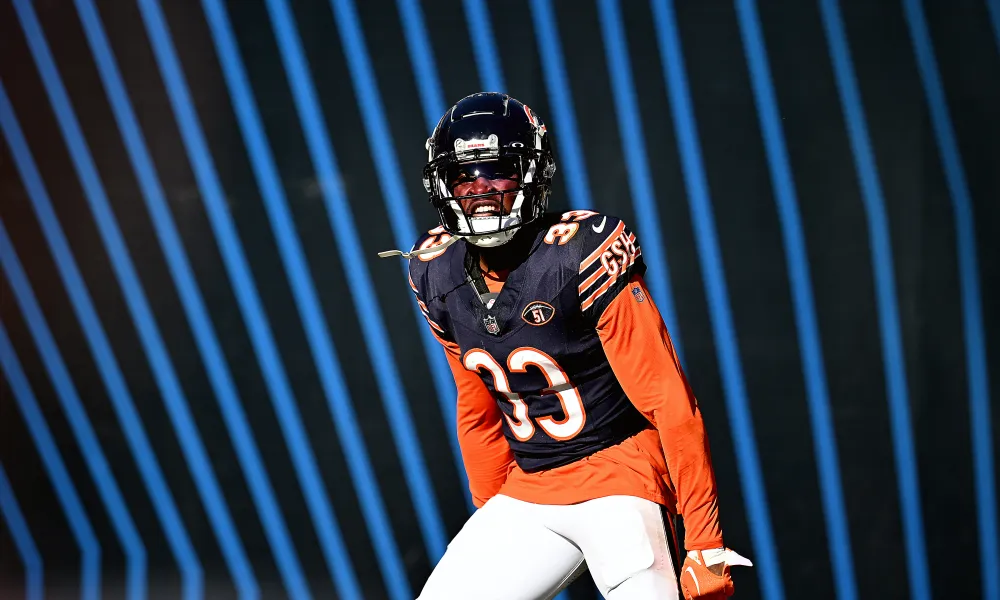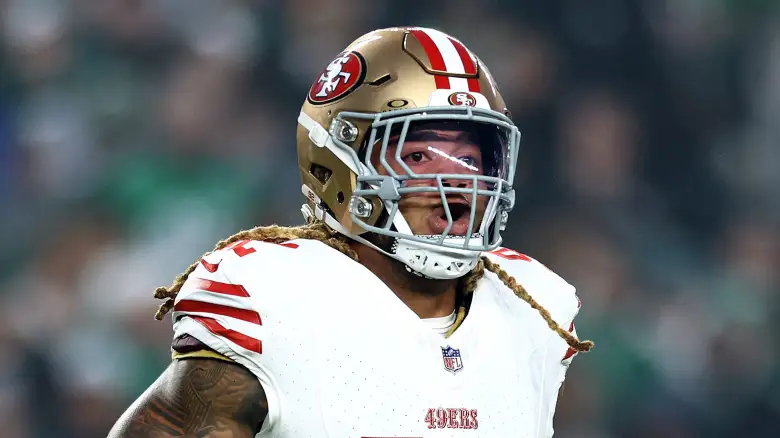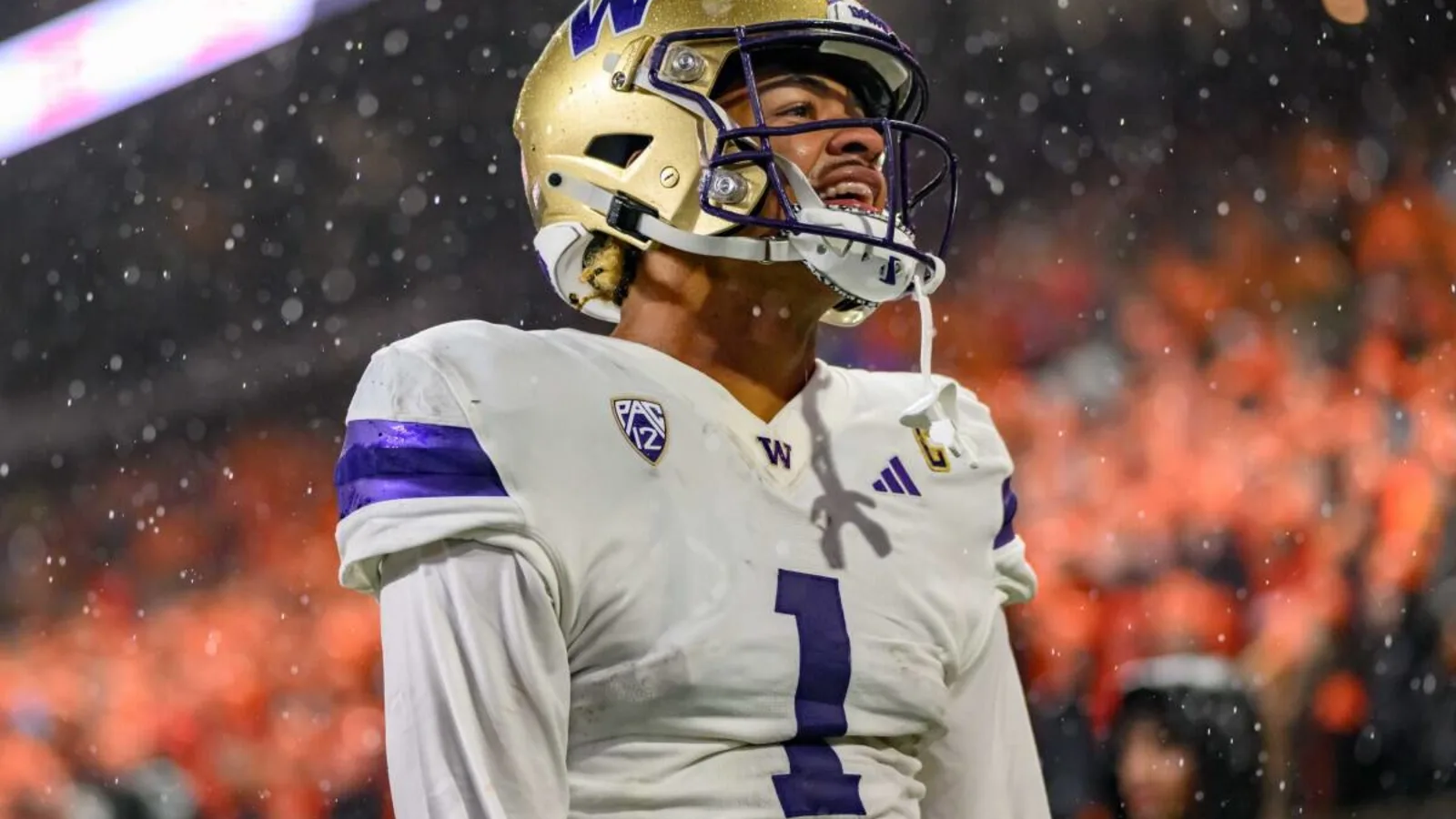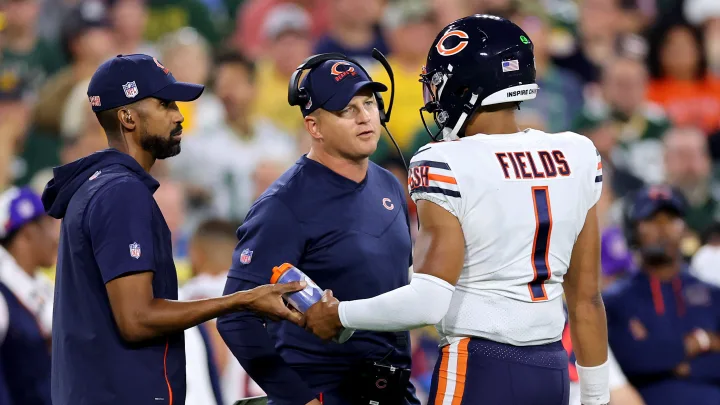
This offseason, one of the more significant boxes the team needs to check is Jaylon Johnson’s future.Johnson will be an unrestricted free agent this offseason after finishing his rookie deal. Earlier this season, Johnson and the Bears couldn’t agree on a long-term deal. But general manager Ryan Poles, when speaking with the media at the end of the season, urged fans not to worry.
“Jaylon’s not going to go anywhere and we’ll work through it to get something done,” Poles said.
Poles even made his ongoing talks with Johnson’s camp seem cheery.
“We have really good communication. The big thing was just kind of take a break here after the season and then we’ll start talks again. I feel really good about that situation.”
Without explicitly saying so, Poles’ directness about Johnson’s future with the Bears points to the organization’s willingness to place a franchise tag on their star cornerback, in the event they can’t agree on a long-term deal.
What would happen if the Bears placed a franchise tag on Johnson?
What is the NFL franchise tag?
The franchise tag is a designation that allows NFL teams to select one player set to be an unrestricted free agent and guarantees another year under contract if certain conditions are met. Each team receives one franchise tag per year and can be applied as either exclusive or non-exclusive.
- Exclusive: Teams must offer the selected player a one-year contract no less than either the average of the top-five salaries at that player’s position based on April of the current year or 120% of the player’s previous year’s salary, whichever is greater.
- Non-exclusive: Teams must offer the selected player a one-year contract no less than the average of the top-five cap hits of that player’s positions or 120% of the player’s previous year’s salary, whichever is greater.
The projected franchise tag number for cornerbacks in 2024 is $18,140,000, according to Over the Cap. That would be a major pay raise from the ~$3 million per year Johnson’s rookie contract yields, still, without an extension.
The window to tag players this offseason is Feb. 20 to March 5.
How do exclusive and non-exclusive tags differ?
The two biggest differences between an exclusive and non-exclusive franchise tag are the incorporation of salary versus cap hit and who holds negotiating power. A cap hit is similar to the salary, but it takes into account all expenses that go toward a team’s total salary cap, such as signing bonuses.
Additionally, each tag comes with different bargaining rights and guaranteed assets for both the player and the team. Aptly named, an exclusive tag gives the team exclusive negotiating rights. Should the player reject the offer, they are unable to sign with another NFL team for that entire season. Meanwhile, non-exclusive tags allow players to negotiate with other teams. If they receive an offer, their current team has the opportunity to match. If they opt not to match the offer, they’re entitled to receive two first-round draft picks in exchange.
What is the NFL transition tag?
Transition tags are similar to franchise tags with two exceptions. Rather than top-five, transition tags use the average of the top-10 highest players at a position and don’t provide any guaranteed compensation clause.
Unlike the franchise tag, teams are given no promise of an asset at the end of the deal. If a team refuses to match a competing team’s offer, therefore losing the player, they do not receive any draft picks in exchange.
Can a player be tagged two years in a row?
Tagging isn’t a one-and-done thing, however, consecutive tags come at a hefty price tag.
If a team applies the franchise tag to a player in back-to-back years, they’re agreeing to pay the athlete 120% of their salary the year before. A third consecutive tag runs at either 144% of the second-year tag salary, 120% of the average of the five highest salaries at their respective position or the average of the top-five salaries at the highest-paid position, whichever is higher.
Maybe the most important question of Johnson’s situation — would he be satisfied if the Bears ended up tagging him during the offseason?
“Money is still good,” Johnson said previously to 670 the Score in early December.



Be the first to comment